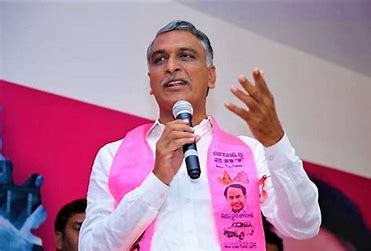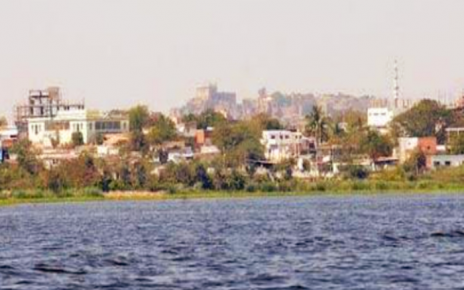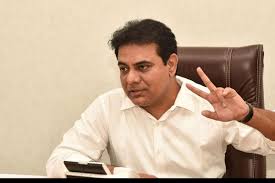Hyderabad: The Bharat Rashtra Samithi (BRS) on Wednesday, December 20, released an ‘assets’ report which mentioned all the assets created and the progress incurred in Telangana under the leadership of former chief minister K Chandrashekhar Rao.
The 51 slide report states that the assets of the state increased by 159 percent after the formation of Telangana, in the last 9 years.
“After the achievement of Telangana, to every one rupee was borrowed, assets of Rs 1000 were created. Per capita income has increased by 151 percent. Tax collections have increased by 161 percent. Revenue from registrations has increased by 406 percent. Crop production has increased. Production of rice increased by 150 percent and cotton by 50 percent. Land under cultivation has increased by 50 percent compared to the pre-BRS rule,” the report claimed.
Speaking in the Assembly, former finance minister T Harish Rao criticised the white paper calling it ‘erroneous’ and alleged that it is meant to defame political rivals and the state.
White paper on debt
This comes as a response to the Congress-led state government’s white paper in the Assembly stating that the state is drowning in a debt of over Rs 6 lakh crore compared to Rs 72,658 crore in 2014-15.
Deputy Chief Minister Mallu Bhatti Vikramarka, who is also finance minister, told the House that the state which was in revenue surplus in 2014 was now depending upon the ways and means of advances from the RBI on a daily basis.
He blamed the financial indiscipline of the previous Bharat Rashtra Samithi (BRS) during the last 10 years for this fiscal stress.
Vikramarka presented a 42-page white paper to initiate a short discussion on Telangana State Finances. He said that the white paper aims to place before people the facts relating to the financial position of the state, as inherited by the present government.
The objective is to foster public debate, informed by facts so that the state finances are managed in a fiscally responsible and prudent manner, he said.
“A careful analysis of the above facts shows that Telangana state which was a revenue surplus state in 2014 and has one of the fastest growing economies in the country is now staring at a debt crisis. The rate of accumulation of the debt from off-budget borrowings has led to this situation,” he said.
20% gap between budgeted and actual expenditure: Bhatti
He mentioned that there is a gap of almost 20 percent between the budgeted and the actual expenditure. This gap in expenditure between the budget and actuals has meant that there is an accumulation of committed expenditure in terms of payments made for the services rendered by the suppliers and contractors and also to the employees.
Further, there is a huge gap between the budgeted and actual money spent on major welfare schemes such as Dalita Bandhu and other welfare programs aimed at the welfare of ST, BC, and minorities.
“In the last 10 years, the total debt of the state and the Special Purpose Vehicles (SPVs) has gone up to Rs 6,71,757 crores from Rs 72,658 crores in 2014-15. This gigantic increase in the debt (almost 10 times) has created an enormous fiscal stress on the state’s finances in terms of its ability to service the debt. Further, no tangible fiscal assets in proportion to the money spent were created in the past 10 years. The debt servicing burden of monies which are borrowed on the budget and off-budget has increased enormously and is consuming 34 per cent of the state’s revenue receipts,” says the whitepaper.
“Further, the salaries and pensions of employees consume another 35 per cent of the state revenue receipts. This committed expenditure has meant that very little fiscal space is available for undertaking any welfare measures for the poorer sections 40 of the society and growth enhancement measures for the development of the economy,” it added.
Total outstanding debt is Rs 6,71,757 crore including Rs 3,89,673 crore FRBM loans as per the Budget estimates of 2023-24. Government-guaranteed loans raised by Special Purpose Vehicles (SPVs) but are serviced by the government are Rs1,27,208 crore. Government-guaranteed loans that are raised by SPVs and serviced by them are Rs 95,462 crore while non-guaranteed loans which are raised and serviced by SPVs/corporations/institutions are Rs 59,414 crore.
Telangana under enormous fiscal stress: White paper
The white paper revealed that due to the increased fiscal stress, the state has to depend upon the ways and means of advances from the RBI daily.
“From a situation where the state had positive balances for all the 100 percent of the days in 2014 to a situation where the state has positive balances in less than 10 percent of the days – shows the enormous fiscal stress. Consequently, the state has not been able to spend enough money on critical sectors such as Education and Health where the budgeted amount as the proportion of the total expenditure is amongst the lowest in the country.”
The government, however, assured the Assembly that every effort would be made to increase the state’s resources and direct expenditures toward uplifting the impoverished while reducing unnecessary spending.
“The new Government is determined to implement all the six guarantees which are promised by the party based on which the people of Telangana had given the mandate for change. The Government is determined to overcome the fiscal challenges in a responsible, prudent and transparent manner,” he added.
Stating that for the first five years after the formation of Telangana state, it was a revenue surplus state. The situation of the state started changing quite drastically once the off-budget borrowings started being mobilised in the name of mega projects such as Kaaleshwaram, Palamuru Rangareddy, Sitarama, and Mission Bhagiratha.
The Fiscal Responsibility and Budget Management Act was amended in the year 2020 so that the quantum of guarantees that could be given by the state government was enhanced consequently from 90 per cent of revenue receipts to 200 per cent.
Large scale mobilisation of the off-budget borrowings and lack of revenues to the SPVs meant that effectively the government guaranteed loans were being serviced by the government itself from the budgetary resources.
This meant a rapid increase in the debt servicing by the state. Therefore, the balance of fiscal space available for the welfare and development of the state of Telangana came down year by year.





